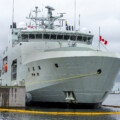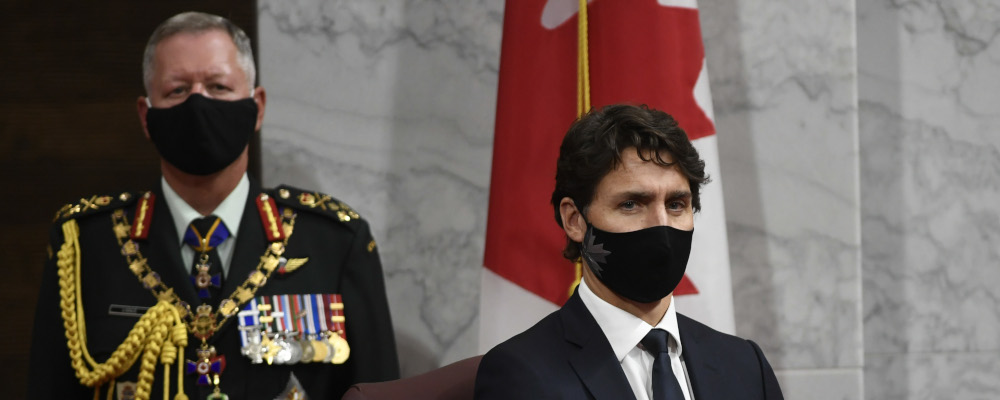Over the coming days, The Hub will publish mandate letters for the incoming cabinet ministers that set out a series of bold policy prescriptions that would cumulatively tilt Canadian politics towards a different and better future.
The best antidote to anger and frustration is aspiration and purpose. The campaign has demonstrated how urgently Canada’s body politic needs such a remedy. There’s no time to waste. It’s time to get to work.
Dear Minister of National Defence,
I am honoured that you have agreed to serve Canadians as the Minister of National Defence.
As you know, our government must have a both a short- and long-term orientation. The immediate priority is to help the country through the COVID-19 pandemic and to catalyse a post-pandemic recovery. Getting Canadian businesses and families to the other end of this crisis is the key to restoring stability and optimism in our economy and society.
Beyond that, though, over the long term, we face many opportunities and challenges including geopolitical instability, aging demographics, climate change, reconciliation with Indigenous peoples, long-term fiscal challenges, low productivity, and slow growth.
Each of these issues could easily consume a government’s attention, focus, and resources. But we do not have the luxury of prioritizing one or some of them. They require similar levels of energy and ambition if we are to lay the foundation for a different and better future for Canadians.
An emphasis on the future is a much-needed antidote to the growing anxiety and pessimism in our country. Even before the pandemic, too many Canadians worried that their children will not have the same opportunities and living standards as them. The pandemic has exacerbated these concerns and cast a pall of uncertainty over our economy and society.
In this context, Canadians have grown skeptical of the ability of government to put aside partisan differences or short-term political advantage and make the hard yet necessary choices to mitigate our long-term challenges and accentuate our opportunities. It is incumbent on us to prove to Canadians that their skepticism and doubt is unwarranted. We must rebuild their trust through our actions and choices.
This principle extends to all aspects of governance. Our government must live up to the highest ethical standards, including openness, honesty, and accountability. I expect you to reflect these values in your work. It is critical that we honour Canadians’ trust in us and the history and dignity of the institutions and roles that we occupy.
Our immediate policy priorities flow from the best ideas and rooted in evidence. I ask that you work with your colleagues to deliver on the following key priorities:
- Ensure the Canadian Armed Forces have the capabilities and equipment required to uphold their responsibilities through continued implementation of Strong, Secure, Engaged, including new procurements and planned funding increases until the publication of a new Defence White Paper within the first year and a half of mandate that will address further capabilities and enhancements to Canada’s defence.
- As part of the new Defence White Paper you will put forward a new space policy to coordinate and provide direction to the use of Canada’s space-based defence assets.
- Ensure the continued effectiveness of Canadian Armed Forces deployments, including Operation IMPACT in the Middle East, Operation NEON in the Asia-Pacific, NATO’s Enhanced Forward Presence in Latvia, the NATO Mission in Iraq and Operation UNIFIER in Ukraine; and Expand Canadian defence cooperation and training assistance.
- Enhance the size and capabilities of Canada’s Special Operations Forces.
- Continue to improve support for the women and men of the Canadian Armed Forces to ensure professionalism at all times, and work with senior leaders of the Canadian Armed Forces to establish and maintain a zero-tolerance workplace free from harassment and discrimination.
- Work with the Minister of Public Services and Procurement enter into a contract to construct Canada’s F-35 fighter aircraft fleet in the first six months of the mandate.
- Work with the Minister of Public Services and Procurement on the renewal of the Royal Canadian Navy Fleet, including finalization of the design and commence production of the Type 26 Frigate within the next year while continuing the revitalization of the shipbuilding industry, and ensuring Canada’s Navy has the modern ships and submarines that it needs in the future.
- Work with the Minister of Public Services and Procurement and the Minister of Industry on the acquisition of a fleet of modern military drone aircraft to cover strategic, operational and tactical requirements and an anti-drone air defense capability.
- With the support of the Minister of Public Safety and Emergency Preparedness, introduce and expand a new framework governing how Canada gathers, manages and uses defence intelligence.
- With the support of the Minister of Justice and Attorney General overhaul and modernize the Canadian Military Justice System.
- Work with the Minister of Veterans Affairs and Associate Minister of National Defence to strengthen partnerships between the Department of National Defence and Veterans Affairs Canada to overhaul service delivery and reduce complexity.
- Work with the Minister of Foreign Affairs to ensure Canada’s strong contributions to the North Atlantic Treaty Organization (NATO) and Five Eyes intelligence community of Canada, Australia, New Zealand, the United Kingdom and the United States and bring forward to cabinet a memorandum on potential offensive cyber operations and take all available steps with the Minister of Public Safety and Minister of Justice to avoid a Cyber “Pearl Harbor.”
- Work with the United States to ensure that the North American Aerospace Defence Command (NORAD) is modernized to meet existing and future challenges including missile defense with the provision of no basing of interceptor missiles in Canada.
- Work with the Minister of Foreign Affairs and the United States to ensure the maritime, ground, air, and space approaches to North America are protected from emerging threats and new technology including our Arctic and North by ensuring that the Canadian Forces remain interoperable with the United States and our bi-lateral and multi-lateral allies in cooperative engagement and sea-based, air and missile defence.
- Work with the Minister of Foreign Affairs to expand Canada’s security role in the world by cooperating with and joining the ASEAN Defense Ministers Meeting, Quadrilateral Defence Dialogue of the United States, India, Japan, and Australia and by joining the new Australian, United Kingdom, and United States Defence Pact or ‘Three Eyes’ that cooperates in sharing leading and emerging technologies to survive in a future hostile security environment.
I know I can count on you to fulfill these responsibilities and help to deliver a different and better future rooted in prosperity and opportunity for all Canadians.
Recommended for You

Sean Speer: Investing in critical minerals isn’t just good business, it’s a national security imperative
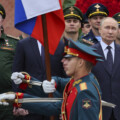
‘Putin has no intention of stopping this war’: Sir Bill Browder on three years of war in Ukraine and how Russia is evading sanctions
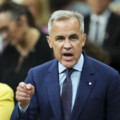
The Weekly Wrap: The Liberals must abandon their internet regulation agenda
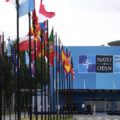
‘This is going to take a carefully executed strategy’: Ann Fitz-Gerald on whether Canada will ever spend 5 percent of its GDP on defence
